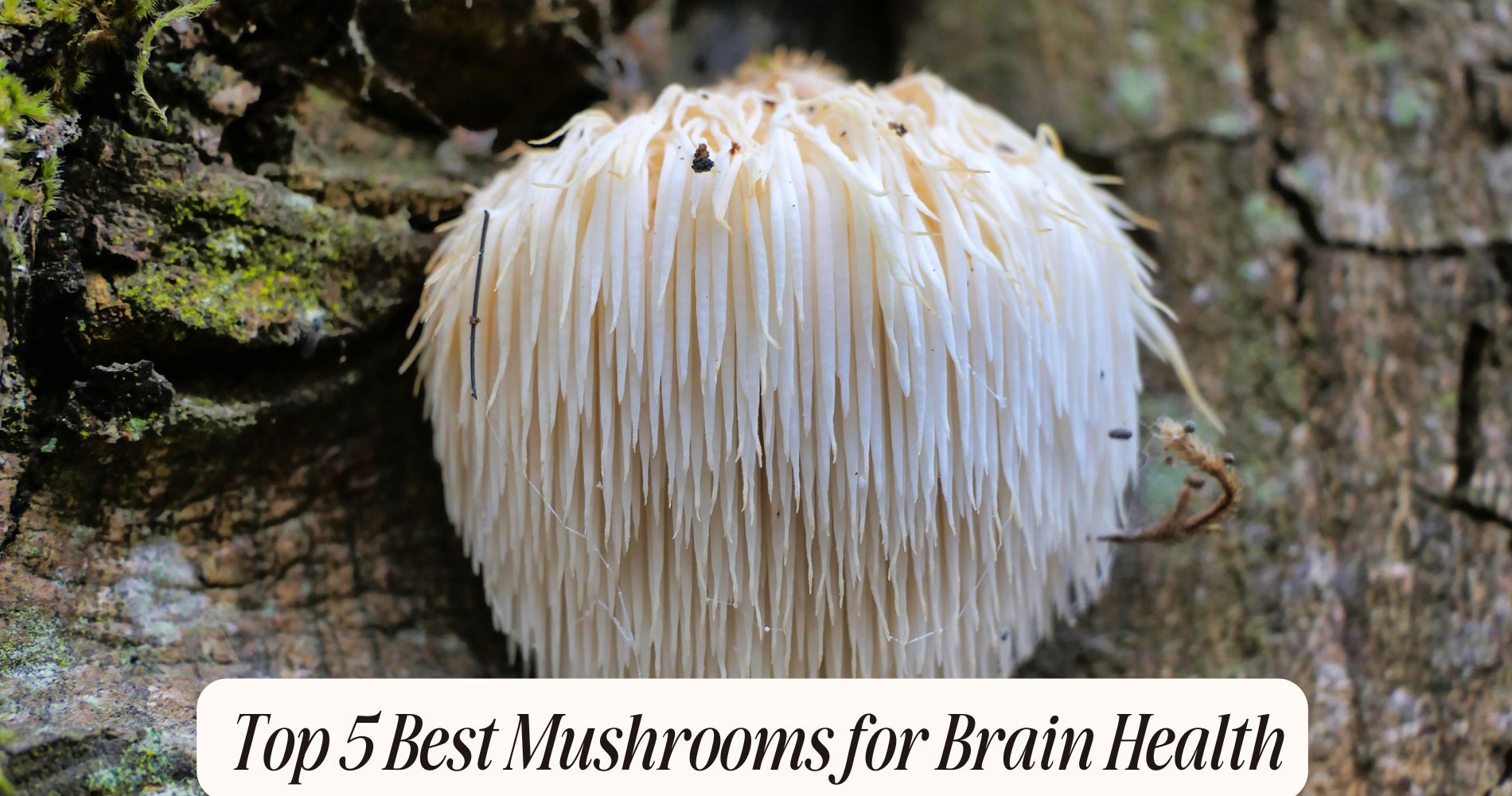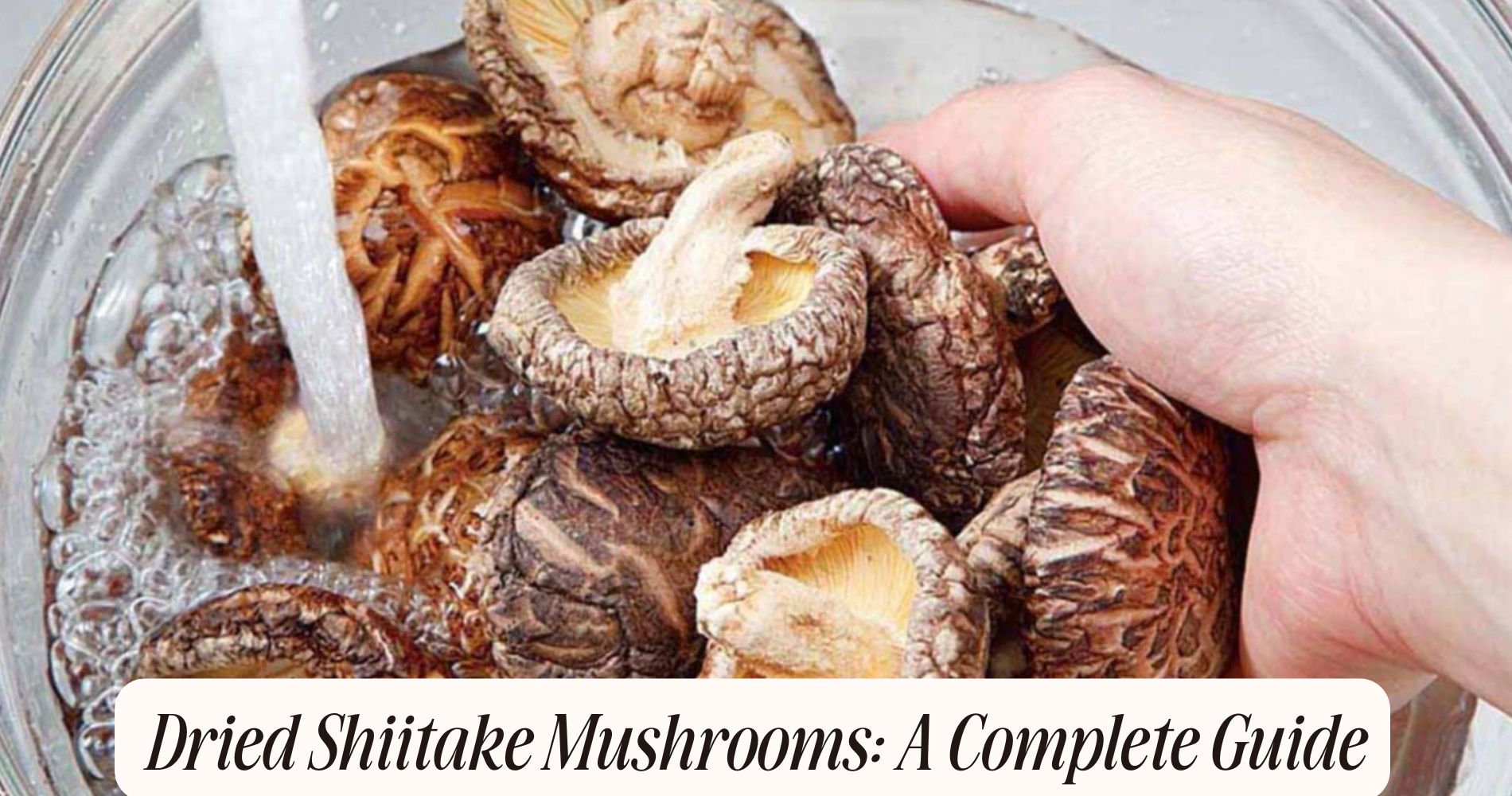
Shiitake Mushroom Benefits for Diabetes
Nutritional Profile of Shiitake Mushrooms
When you look at the nutritional profile of shiitake mushrooms, you'll find they pack a punch with essential nutrients. These mushrooms are low in calories but rich in vitamins and minerals, making them an excellent addition to any diet. A typical serving contains B vitamins, including B2 (riboflavin) and B5 (pantothenic acid), which support energy metabolism and overall health.
Shiitake mushrooms also provide significant amounts of copper, selenium, and fiber, contributing to your nutritional needs.
In terms of shiitake cultivation, these fungi thrive in various environments, often grown on logs or sawdust blocks, allowing for diverse cultivation methods. You might encounter different shiitake varieties, each offering unique flavors and textures. For example, the "Black Forest" variety is known for its robust taste, while the "Golden" variety offers a milder flavor profile.

Incorporating shiitake mushrooms into your meals not only enhances taste but also elevates your nutrient intake. The combination of essential nutrients found in shiitake mushrooms can serve as a valuable component of a balanced diet.
Effects on Blood Sugar Levels
Shiitake mushrooms not only enhance the nutritional profile of your meals but may also positively impact blood sugar levels. These mushrooms have a low glycemic index, meaning they cause a slower, more gradual rise in blood sugar compared to high-glycemic foods. This characteristic can be beneficial for individuals seeking to manage their blood sugar regulation effectively.
Research suggests that shiitake mushrooms contain compounds like polysaccharides, which may help in stabilizing blood sugar levels post-meal. Incorporating shiitake mushrooms into your diet may help prevent sharp spikes in glucose levels, promoting a more balanced approach to blood sugar management.
Additionally, their rich fiber content contributes to a feeling of fullness, which can help you avoid overeating and support your overall dietary goals. By adding shiitake mushrooms to stir-fries, soups, or salads, you not only boost the flavor but also introduce a food that may assist in maintaining healthy blood sugar levels.
Incorporating shiitake mushrooms into your meals could be a simple yet effective way to support your overall health while keeping blood sugar levels in check.
Enhancing Insulin Sensitivity
Shiitake mushrooms offer a nutrient composition that may support enhanced insulin sensitivity, which is essential for managing diabetes.
Their rich profile of vitamins and minerals, along with anti-inflammatory properties, can play a significant role in improving your body's response to insulin.
Understanding how these factors interact can help you make informed dietary choices to better manage your condition.
Nutrient Composition Impact
The nutrient composition of shiitake mushrooms plays an essential role in enhancing insulin sensitivity, making them a valuable addition to the diet for those managing diabetes. These mushrooms are rich in dietary fiber, which can help regulate blood sugar levels. High fiber content slows down carbohydrate absorption, leading to a more gradual increase in blood glucose levels. This characteristic is especially beneficial for individuals looking to stabilize their sugar levels.
Additionally, shiitake mushrooms have a low glycemic index, which means they cause a slower rise in blood sugar after consumption. Foods with a low glycemic index are generally recommended for people with diabetes, as they can help maintain better blood sugar control.

Moreover, the unique combination of vitamins, minerals, and antioxidants found in shiitake mushrooms may further support metabolic health. For instance, their content of B vitamins contributes to energy metabolism, while various minerals like selenium and copper play roles in antioxidant defense.
Incorporating shiitake mushrooms into your meals can be a tasty and nutritious way to enhance insulin sensitivity and overall health. By making simple dietary changes, you can effectively manage your diabetes and improve your well-being.
Anti-Inflammatory Properties
Numerous studies highlight the anti-inflammatory properties of shiitake mushrooms, which can considerably enhance insulin sensitivity. The shiitake compounds, particularly polysaccharides and other bioactive components, play a vital role in inflammation reduction.
When inflammation is decreased, the body can respond better to insulin, helping to regulate blood sugar levels more effectively.
Research shows that chronic inflammation often contributes to insulin resistance, a significant factor in the development of type 2 diabetes. By incorporating shiitake mushrooms into your diet, you might benefit from their unique ability to modulate inflammatory responses.
This effect can lead to improved glucose metabolism and overall better blood sugar control.
Moreover, shiitake mushrooms aren't only tasty but also versatile, making them easy to add to various dishes. Whether sautéed, added to soups, or used in stir-fries, their health benefits can be enjoyed in numerous ways.
Antioxidant Properties
Packed with antioxidants, shiitake mushrooms offer significant health benefits, particularly for those managing diabetes. These mushrooms contain a variety of shiitake antioxidants that combat oxidative stress in the body.
Oxidative stress occurs when free radicals exceed the body's ability to neutralize them, leading to cellular damage. For individuals with diabetes, managing oxidative stress is vital, as it can contribute to complications associated with the condition.
Research shows that the antioxidants found in shiitake mushrooms, such as ergothioneine and selenium, may help reduce inflammation and lower blood sugar levels. By incorporating shiitake mushrooms into your diet, you're not only enjoying a flavorful addition to your meals but also providing your body with a powerful defense against the harmful effects of free radicals.
Moreover, these antioxidants can enhance your overall well-being, supporting better metabolic health and potentially reducing the risk of diabetes-related complications.
Regular consumption of shiitake mushrooms can be an easy and delicious way to fortify your diet with essential nutrients that promote health, making them a smart choice for diabetes management.
Supporting Immune Function
Shiitake mushrooms play an essential role in supporting immune function, thanks to their rich array of bioactive compounds.
These mushrooms are packed with polysaccharides, particularly lentinans, which have been shown to enhance your immune response. Research indicates that shiitake benefits include stimulating the production of immune cells, such as macrophages and natural killer cells, which are key in fighting infections and diseases.

Incorporating shiitake mushrooms into your diet can serve as a natural immune booster. They contain important nutrients like vitamin D, which is critical for immune health, and selenium, a mineral that plays a role in regulating immune function.
Regular consumption of shiitake may also reduce inflammation, further supporting your overall immune system.
Moreover, the antioxidants found in shiitake mushrooms help combat oxidative stress, which can weaken your immune defenses.
By integrating these mushrooms into your meals, you not only enjoy their unique flavor but also harness their potential health benefits.
Culinary Uses and Recipes
In addition to their immune-boosting properties, shiitake mushrooms are a versatile ingredient in the kitchen, enhancing a variety of dishes with their rich, umami flavor. You can easily incorporate these mushrooms into your meals, benefiting both your palate and your health.
For a quick and nutritious option, try making shiitake stir fries. Just sauté shiitake mushrooms with your favorite vegetables and a splash of soy sauce for a satisfying dish.
If you're in the mood for something hearty, mushroom soups featuring shiitake mushrooms can serve as a comforting choice. Their deep flavor adds depth to any broth.
Shiitake salads are another fantastic way to enjoy these mushrooms. Simply toss sliced shiitake with mixed greens, cherry tomatoes, and a light vinaigrette for a revitalizing meal.
If you prefer a more robust flavor, consider grilling shiitake mushrooms. Brush them with olive oil and seasonings, then grill until tender.
These culinary uses not only highlight the shiitake mushroom's versatility but also allow you to enjoy its numerous health benefits, making it an excellent addition to your diabetes-friendly diet.
Incorporating Shiitake Into Your Diet
Adding shiitake mushrooms to your diet can be a simple yet effective way to enhance your meals while reaping health benefits, especially for managing diabetes. These mushrooms are low in calories and rich in nutrients, making them an excellent choice for maintaining healthy blood sugar levels.
When it comes to shiitake preparation, you can enjoy them in various forms, such as sautéed, roasted, or added to soups and stir-fries. Their rich umami flavor makes them a versatile ingredient that pairs well with many foods.

Try combining them with leafy greens, whole grains, or legumes for a balanced meal that supports your health.
Flavor pairing is key. Shiitake mushrooms complement garlic, ginger, and soy sauce beautifully, enhancing savory dishes. You can also use them in sauces or as a meat substitute in recipes, thanks to their hearty texture.
To start incorporating shiitake into your diet, consider adding them to breakfast omelets, lunchtime salads, or evening pasta dishes. With these simple strategies, you can enjoy shiitake mushrooms while potentially benefiting your diabetes management.
Manage Wellness with SUPER MUSHROOM GUMMIES
Support your health journey with SUPER MUSHROOM GUMMIES from Well Gummies. Packed with 10 powerful mushrooms, including shiitake, these vegan-friendly gummies offer more than just immune support—they can also help regulate blood sugar and promote sustained energy, making them a great addition to diabetes management.
Enjoy the delicious wild berry flavor without jitters or crashes. Whether you're boosting focus, energy, or overall wellness, SUPER MUSHROOM GUMMIES make it easy and enjoyable to fuel your mind and body every day.
Frequently Asked Questions
Are Shiitake Mushrooms Safe for People on Diabetes Medication?
Yes, shiitake mushrooms are generally safe for you if you're on diabetes medication. They can support diabetes management due to their nutritional profile, but it's best to consult your healthcare provider for personalized advice.
Can Shiitake Mushrooms Interact With Other Health Conditions?
Shiitake mushrooms can have health interactions, particularly with certain medications. It's important you consult your healthcare provider to understand how they might affect your specific conditions and medications, ensuring your safety and well-being.
How Should Shiitake Mushrooms Be Stored for Freshness?
To keep shiitake mushrooms fresh, store them in a paper bag in the refrigerator. This method maintains ideal conditions, preventing moisture buildup and spoilage, ensuring you enjoy their flavor and texture for longer.
What Is the Best Way to Prepare Shiitake Mushrooms?
For shiitake preparation, try sautéing, grilling, or roasting. Each cooking method enhances their rich umami flavor. Make certain you clean them properly and consider adding garlic or soy sauce to elevate the taste even further.
Are There Any Side Effects of Consuming Shiitake Mushrooms?
While shiitake mushrooms are generally safe, some people may experience shiitake mushroom allergies or mild gastrointestinal issues. Rarely, excessive consumption can lead to shiitake mushroom toxicity, so moderation is key for your health.
Conclusion
Incorporating shiitake mushrooms into your diet can offer several benefits for managing diabetes. Their nutritional profile supports blood sugar regulation and enhances insulin sensitivity, while their antioxidant properties help combat oxidative stress. Additionally, shiitake mushrooms bolster immune function, making them a versatile and healthful choice. By exploring various culinary uses and recipes, you can easily enjoy the advantages of shiitake mushrooms while adding delicious flavors to your meals. Embrace this nutritious option for better overall health.




